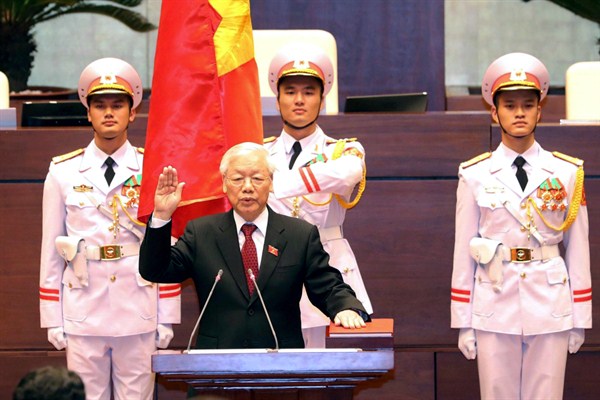At 76, Nguyen Phu Trong is a man in a hurry, intent on saving Vietnam's Communist Party from corruption, backsliding and irrelevance. The implications for Vietnam are considerable, since the party’s claim on a monopoly of political power largely rests on its presumed moral superiority.
Trong, a Marxist theoretician, is an unlikely leader. For decades, he toiled in obscurity, railing against party members’ loss of Marxist-Leninist virtue and decrying the erosion of the party’s revolutionary legitimacy. Then, three years ago, Trong orchestrated the dismissal of his bete noire, two-term Prime Minister Nguyen Tan Dung. Now he’s head of state as well as party chief, the most powerful Vietnamese leader in decades and the scourge of high officials who have combined with unscrupulous businessmen to rip off the state.
Yet on April 14, Trong fell ill during an inspection trip to a Mekong Delta province. The state-supervised media were allowed to report that he had been hospitalized, but not why. Posts to online media speculated about the destabilizing consequences of the untimely incapacity or death of the general secretary and state president. And then, exactly a month later, national television broadcast a clip of Trong leading a carefully scripted meeting with his chief lieutenants. As the prime minister, the chairwoman of the National Assembly, and Trong’s chief assistant, party executive secretary Tran Quoc Vuong, listened attentively, an apparently healthy Trong vowed to “continue the struggle against corruption and negativity with a resolute and steadfast spirit.”

